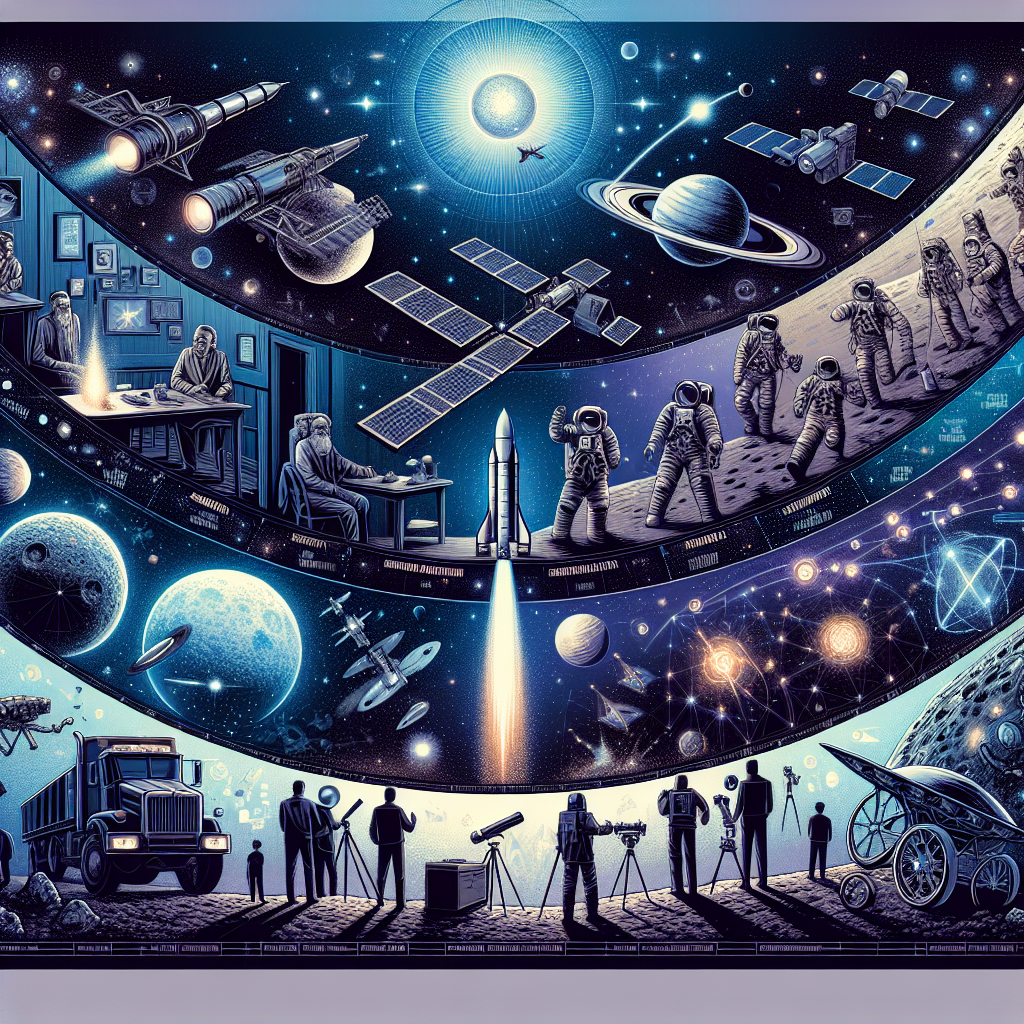From Dreams to Stars: How Humanity Took Its First Steps in Space Exploration

The journey of space exploration is a remarkable tale of human initiative fueled by curiosity, ambition, and an insatiable desire to transcend the limits of our blue planet. From the fleeting shadows cast by ancient astronomers to the real-time data sent back from distant worlds, the story of reaching for the stars is one forged over centuries of exploration and innovation. So, how did we evolve from gazing at the night sky to sending rovers to Mars? Let’s explore the intriguing history of space exploration.
The Dawn of Astronomy
Long before rockets and satellites, our ancestors observed the night sky, crafting primitive calendars based on celestial movements. Ancient civilizations, such as the Babylonians and Greeks, laid the groundwork for modern astronomy. They puzzled over planetary motions and developed theories to explain the cosmos. It was during these early times that the seeds of curiosity were sown, leading to questions that would shape humanity's fate in the universe.
The Space Race: A New Era
The mid-20th century marked a seismic shift in human space exploration. As tensions rose during the Cold War, a fierce rivalry emerged between the United States and the Soviet Union. In 1957, the Soviets launched Sputnik, the world's first artificial satellite, igniting a passion for space in millions. Following this, the U.S. initiated its own programs, culminating in the historic Apollo 11 mission in 1969, where Neil Armstrong and Buzz Aldrin became the first humans to set foot on the lunar surface. This monumental achievement demonstrated not only technological prowess but also the collective spirit of exploration.
The Post-Apollo Era: Expanding Horizons
The accomplishments of the Apollo program did not mark the end of human exploration; rather, they set the stage for new adventures. The focus shifted towards understanding our solar system better. Missions like Voyager 1 and 2, launched in 1977, crafted detailed portraits of the outer planets and continued to send back data from the fringes of our solar system, far beyond where human eyes could see. These robotic explorers paved the way for our continued curiosity about other worlds and the potential for life beyond Earth.
Today and Beyond: The New Frontier in Space Exploration
Fast forward to today, and we find ourselves at the threshold of a new era in space exploration. With the advent of private companies like SpaceX and Blue Origin, space travel is becoming increasingly accessible. The moon, Mars, and beyond are no longer just distant dreams; they are tangible goals for humanity. Missions aimed at returning to the moon and sending crewed missions to Mars are underway, driven by both governmental space agencies and commercial enterprises. Moreover, advancements in technology, from reusable rockets to AI, promise to usher in a new age of space travel that could change how we see our place in the universe.
The Importance of Space Exploration
As we gaze up at the night sky, it's crucial to understand the implications of space exploration. Beyond the scientific advancements, it fuels international cooperation and inspires generations to pursue STEM fields. Understanding our universe creates a sense of unity, driving home the fact that we share one fragile planet. Each mission into space could ultimately hold the key to various mysteries—like the origins of our planet or the existence of extraterrestrial life—which could redefine our understanding of life itself.
Conclusion: A Journey Toward the Infinite
As humanity stands at the precipice of an exciting era in space exploration, one can’t help but feel a sense of hope and possibility. The journey from ancient stargazers to cutting-edge space missions illustrates not just our technological advancements but our innate desire to explore the unknown. The stars beckon, and it is up to us to answer that call with courage, curiosity, and ingenuity. In doing so, we may unlock the secrets of our universe and perhaps even the future of humanity itself.